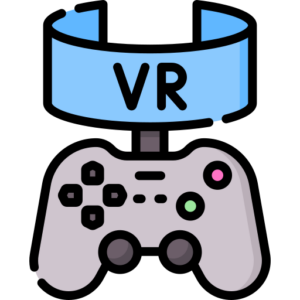In recent years, Virtual Reality (VR) eSports has emerged as an exciting new frontier in competitive gaming, offering players a unique and immersive gaming experience unlike anything seen before. With VR technology becoming increasingly accessible and sophisticated, VR eSports has grown in popularity, attracting players and spectators from around the world. In this article, we’ll explore the rise of VR eSports, its impact on the gaming industry, and the future of competitive gaming in virtual reality.
What is VR eSports?
VR eSports, also known as VR gaming or VR competitive gaming, refers to competitive multiplayer gaming experiences that take place in virtual reality environments. Players wear VR headsets and use motion controllers to interact with the game world, immersing themselves in highly realistic and immersive gaming environments. VR eSports encompass a wide range of game genres, including first-person shooters, sports simulations, and multiplayer battle arenas.
Example: Echo Arena
Echo Arena is a prime example of a VR eSports game that has gained popularity in recent years. Developed by Ready At Dawn Studios, Echo Arena is a futuristic multiplayer sports game that combines elements of ultimate frisbee and zero-gravity movement. Players compete in teams to score goals and outmaneuver their opponents in fast-paced, adrenaline-fueled matches. With its intuitive controls and immersive gameplay, Echo Arena has become a staple of the VR eSports scene, attracting players and spectators alike.
The Growth of VR eSports

The growth of VR eSports can be attributed to several key factors, including advancements in VR technology, the rise of competitive gaming culture, and the increasing accessibility of VR hardware. As VR headsets have become more affordable and user-friendly, an increasing number of players have been able to experience the thrill of VR gaming for themselves. Additionally, the development of high-quality VR eSports titles and the establishment of dedicated VR eSports leagues and tournaments have helped legitimize VR gaming as a competitive sport. The 10 best VR games of the year that are a must-play, read more here.
Example: VR League
The VR League, organized by ESL Gaming, is one of the premier VR eSports leagues in the world. The league features a variety of VR eSports titles, including Echo Arena, Onward, and Sprint Vector, and hosts regular tournaments and events where players can compete for cash prizes and recognition. With its emphasis on competitive gaming and community engagement, the VR League has played a significant role in popularizing VR eSports and establishing it as a legitimate competitive sport.
Impact on the Gaming Industry
The rise of VR eSports has had a profound impact on the gaming industry, driving innovation, investment, and growth in the VR gaming market. As more players and spectators engage with VR eSports content, developers and publishers have been incentivized to create high-quality VR games and experiences that cater to the competitive gaming community. Additionally, the success of VR eSports has helped raise awareness of VR technology and its potential applications beyond gaming.
Example: Oculus Quest
The success of VR eSports has helped drive sales of VR hardware, including standalone headsets like the Oculus Quest. With its affordable price point and wireless, untethered design, the Oculus Quest has become a popular choice for VR eSports enthusiasts looking for an immersive gaming experience without the need for expensive gaming PCs or consoles. By providing players with a seamless and intuitive VR experience, the Oculus Quest has helped democratize VR gaming and expand the reach of VR eSports to a wider audience.
The Future of VR eSports

As VR technology continues to evolve and improve, the future of VR eSports looks bright. Advances in hardware, software, and networking technology are enabling developers to create increasingly immersive and realistic VR experiences, while the growing popularity of VR eSports is attracting investment and talent to the industry. With the continued support of developers, publishers, and eSports organizations, VR eSports is poised to become a major player in the competitive gaming landscape.
Example: Population: One
Population: One is an upcoming VR battle royale game that has generated significant buzz within the VR eSports community. Developed by BigBox VR, Population: One promises to deliver a groundbreaking VR eSports experience, with fast-paced gameplay, intuitive controls, and a dynamic, ever-changing game world. With its innovative approach to VR gaming and its focus on competitive multiplayer action, Population: One has the potential to become a flagship title in the VR eSports scene.
Conclusion
The rise of VR eSports represents an exciting new chapter in the history of competitive gaming, offering players a truly immersive and exhilarating gaming experience. With advances in VR technology and the growing popularity of VR eSports titles, the future of competitive gaming in virtual reality looks brighter than ever. As players and spectators alike continue to embrace the world of VR eSports, we can expect to see even more innovation, excitement, and growth in the years to come.
For more information on VR eSports, visit Wikipedia, IGN, and Fandom.


